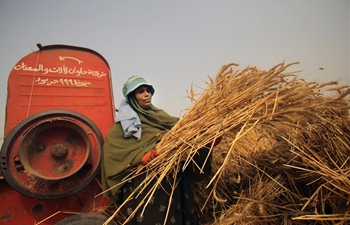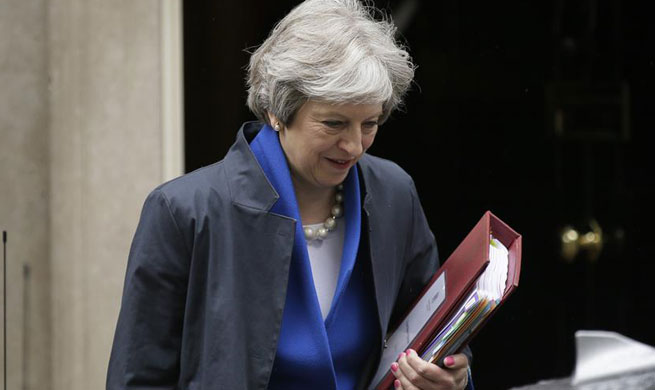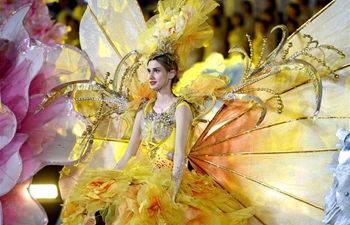CHICAGO, May 2 (Xinhua) -- Class clowns may be the most sought-after playmates on the playground during the first and second grades in elementary school, but they may plummet to the bottom of the social circle as classmates' disapproval of their behavior grows, a study of the University of Illinois (UI) found.
UI researcher Lynn A. Barnett, an educational psychologist and professor of recreation, sport and tourism, followed 278 kindergarteners through their first three years of school to explore how playful children viewed themselves and how they were perceived by their classmates and teachers.
In the study, each student's playfulness was assessed using a 23-item scale that rated their propensity for physical, social and cognitive spontaneity; the enthusiasm they manifested during play; and their sense of humor.
Children and teachers were asked to name students in their class who joked around a lot and attempted to entertain their classmates. Students who were nominated by at least 25 percent of their peers were considered to be "class clowns."
While playful boys and girls were equally likely to be viewed this way by their first-grade peers, classmates in second and third grades were more likely to apply the label class clown to boys, but not girls, as were their teachers.
In first and second grades, playful boys and girls viewed themselves as having superior social skills compared with their classmates, and they tended to be the most popular playmates in their peer groups, and continued to enjoy higher social status as they advanced to second grade. By third grade, however, these boys plummeted to the bottom of the social ladder, becoming the children that others preferred playing with least.
Accordingly, these boys, once confident in their social skills, had begun viewing themselves as unpopular and socially incompetent in third grade, said Barnett in a news release posted on UI website Tuesday.
First-and second-graders tended not to see any distinctions between more and less playful children's behavior and did not consider class clowns' behavior disruptive, Barnett said. By third grade, though, classmates' opinions of playful boys' behavior had reversed, and peers considered them more disruptive than other students.
This dramatic reversal in playful boys' social standing and feelings of social competence appeared to mirror teachers' reactions to their behavior, Barnett said.
"Beginning in first grade, teachers showed their distaste for boys they called class clowns, consistently viewing them as disruptive and as the least socially skilled students in their classes," Barnett said. "These perceptions strengthened as children progressed through their first three years of school. While most children were seen as becoming more socially competent across time, playful boys were actually regarded as declining as they approached third grade."
Finding ways for educators to encourage and channel children's playful behavior in the classroom would help promote positive outcomes for children and better teacher-student relationships, Barnett said.
The study has been published in the journal Frontiers in Psychology.
















